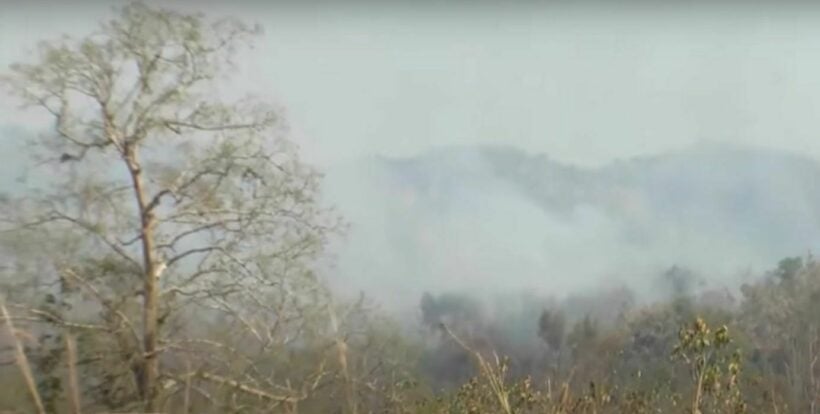Biochar could solve smoke pollution problem in Chiang Mai

The emerging technology of biochar may be at the forefront of dealing with Chiang Mai and its globally infamous smoke and air pollution. After another terrible burn season where the air quality was rated among the worst in the world, Chiang Mai is often rated the most polluted city in the world.
As scientists worldwide tackle climate change, Chiang Mai stands out as an example of how animal agriculture is a major and often overlooked part of the climate crisis. While coal burning and gas-guzzling automobiles tend to get the most attention in the climate change debate, food production is a massive contributor to the problem.
Michael Schaefer, an American university professor now running Chiang Mai’s Warm Heart Foundation explains that as people earn more money, they want to indulge in costlier foods such as meat and dairy. With the increased demand for these animal products comes an equally increased need for the staple crops that feed these animals like corn.
Corn growth has become a linchpin of farming in Chiang Mai as well as Myanmar and Laos. This farming feeds animals like chickens and pigs, whose consumption is unlikely to wane in popularity anytime soon. But burning the waste from the corn to feed livestock is what creates Chiang Mai’s massive smoke problem.
Corn is an inefficient crop with only 22% of the plant being edible making the amount of waste to be burned off problematic. The husk, cob, and corn stock have to be cleared before you can plant the next year’s crop. Other methods of clearing the land like tractors or hand picking are just too time-consuming and inefficient when a fire can do the job quickly.
The Warm Heart Foundation has proposed turning this waste in Chiang Mai into biochar, a version of charcoal that’s far more eco-friendly. Biochar can be used to make smokeless briquettes for our barbecues, as well as soil decontaminant and fertilizer. By using the waste from the burn off to create byproducts farmers can essentially have a secondary income source.
Creating biochar does not require expensive high-tech machinery, as smokeless incinerators can be built out of old oil drums or livestock feeding troughs. Putting that carbon-rich biochar back into the soil in Chiang Mai will last for thousands of years and remove it from the atmosphere.
Animal agriculture and food systems contribute 25 to 30% of the greenhouse emissions in the world according to the Our World in Data project from Oxford University. Agriculture accounts for half the usable land on the planet and 77% of that land is farming livestock, even though the animals raised only provide about 18% of the calories the world’s population consumes. Half of all the farming harvests go to feed these animals being raised for consumption. Animal agriculture also uses 15 times more land, 13 times more water, and 11 times more fossil fuel to generate protein.
It’s not a perfect solution for the environment, but a step in the right direction as converting the world to a plant-based diet is not likely anytime soon. The UN Food and Agriculture Organisation estimated that farmlands roughly the size of North America and Brazil combined could be returned to nature if everyone stopped eating meat.
Letting nature take its course is still the best way to remove carbon from the atmosphere, but without a vegan revolution, this is not likely. If Chiang Mai could start using this biochar production model it would remove hundreds of thousands of tons of CO2 from the atmosphere and create more fertile fields allowing farming land to potentially be decreased and returning some land to nature.
SOURCE: Bangkok Post
Latest Thailand News
Follow The Thaiger on Google News:


























